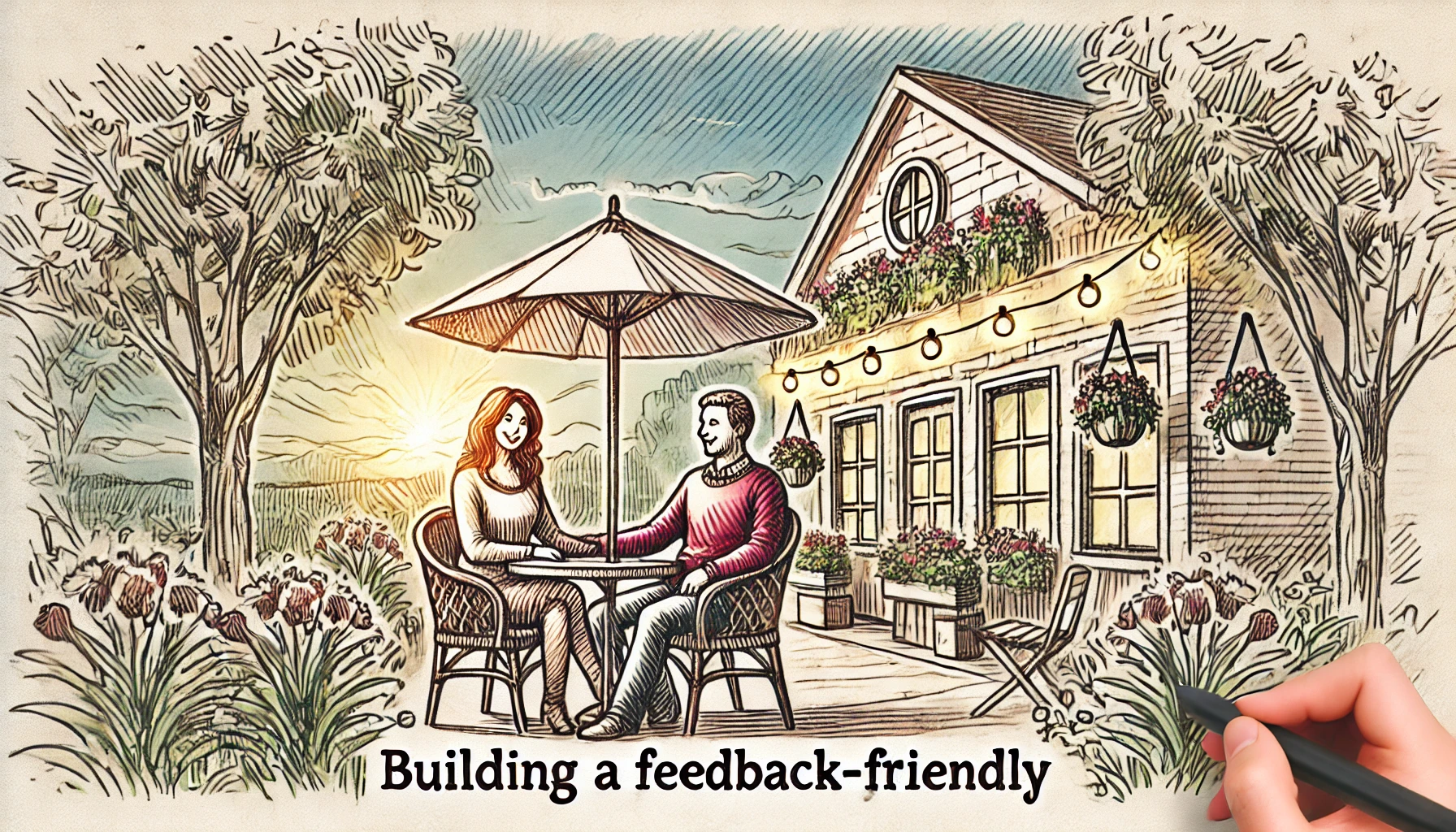Constructive feedback is a valuable tool for personal and professional growth. It provides individuals with insights into their performance, behavior, and communication, helping them identify areas for improvement and build on their strengths. Unlike criticism, which can often feel negative and discouraging, constructive feedback is delivered with the intention of […]
How to Use Feedback to Improve Communication
Effective communication is the cornerstone of successful relationships, both personal and professional. It ensures that information is clearly exchanged, misunderstandings are minimized, and trust is built. One of the most powerful tools for enhancing communication is feedback. By using feedback effectively, individuals can identify areas for improvement, understand different perspectives, […]
Building a Feedback-Friendly Relationship
Constructive feedback is a vital component of healthy and productive relationships, whether in the workplace, among friends, or within families. A feedback-friendly relationship fosters open communication, mutual respect, and continuous growth. It creates an environment where individuals feel comfortable sharing their thoughts and receiving insights without fear of judgment or […]
Overcoming Challenges in Giving Feedback
Giving feedback is a critical component of effective communication, personal development, and team dynamics. However, it is not always an easy task. Various challenges can arise, such as fear of conflict, concern about hurting someone’s feelings, or uncertainty about how to deliver the message effectively. Overcoming these obstacles is essential […]
Techniques for Delivering Constructive Feedback
Delivering constructive feedback is an essential skill in personal and professional settings. It involves providing clear, specific, and actionable insights that help individuals improve their behavior, performance, or skills. Unlike criticism, which can be negative and demotivating, constructive feedback aims to support and encourage growth. However, delivering feedback effectively requires […]
Techniques for Delivering Constructive Feedback
Delivering constructive feedback is an essential skill in personal and professional settings. It involves providing clear, specific, and actionable insights that help individuals improve their behavior, performance, or skills. Unlike criticism, which can be negative and demotivating, constructive feedback aims to support and encourage growth. However, delivering feedback effectively requires […]
The Role of Feedback in Conflict Resolution
Feedback plays a crucial role in conflict resolution by providing a means for parties to express their thoughts, emotions, and perspectives in a constructive manner. Effective feedback can clarify misunderstandings, address grievances, and pave the way for finding common ground. When conflicts arise, providing and receiving feedback helps to identify […]
Developing Skills for Constructive Feedback
Constructive feedback is a cornerstone of effective communication and personal development. Whether in the workplace, academic settings, or personal relationships, the ability to provide and receive constructive feedback can lead to growth, improved performance, and stronger connections. However, delivering feedback that is both helpful and respectful requires specific skills that […]
How to Provide Constructive Feedback Effectively
Constructive feedback is an invaluable tool in personal and professional settings. It helps individuals recognize their strengths, identify areas for improvement, and encourages growth. Unlike criticism, which can often be negative and demotivating, constructive feedback is intended to be supportive and helpful. When delivered effectively, it can enhance performance, improve […]
The Importance of Constructive Feedback in Relationships
Constructive feedback is a vital component of healthy relationships, whether they are romantic, familial, or friendships. It serves as a tool for communication, understanding, and growth. By providing and receiving constructive feedback, individuals can address issues, clarify misunderstandings, and strengthen their connections. Unlike criticism, which often focuses on faults, constructive […]










